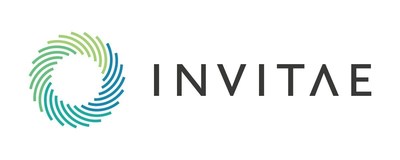Clinical Trial Results Support Genetic Testing of All Patients with Prostate Cancer
– Research published in European Urology Oncology shows restrictive genetic testing criteria miss a significant number of prostate cancer patients with potentially actionable inherited variants –
– Offering germline testing to all prostate cancer patients could improve access to critical genetic information, particularly for historically underrepresented groups –
In this prospective, observational study, nearly 1,000 men with prostate cancer unselected for family history of cancer, age at diagnosis or stage of disease, underwent germline genetic testing of 84 cancer predisposition genes under the care of urologists across the
"Real world evidence suggests that less than
Among nearly 1,000 patients (median age at diagnosis was 65 years),
The data show nearly
"According to the American Cancer Society, prostate cancer is the second most common cancer in American men. Considering how common this diagnosis is, it's critical that individuals are offered the proper screenings and access to necessary preventive measures to assess their risk and detect cancer as early as possible," said W. Michael Korn, M.D., chief medical officer for oncology at Invitae. "Through this study, we are seeing how genetic testing can play a vital role in understanding a prostate cancer diagnosis, as it can inform different types of treatment that might work best for a patient's individual needs."
The findings support broadening the current guidelines and offering germline genetic testing to all patients with prostate cancer. This could change the standard of medical care for these patients, expanding access to precision therapies, clinical trial treatments and enhanced screening.
About Invitae
Invitae (NYSE: NVTA) is a leading medical genetics company trusted by millions of patients and their providers to deliver timely genetic information using digital technology. We aim to provide accurate and actionable answers to strengthen medical decision-making for individuals and their families. Invitae's genetics experts apply a rigorous approach to data and research, serving as the foundation of their mission to bring comprehensive genetic information into mainstream medicine to improve healthcare for billions of people.
To learn more, visit invitae.com and follow for updates on Twitter, Instagram, Facebook and LinkedIn @Invitae.
Safe Harbor Statement
This press release contains forward-looking statements within the meaning of the Private Securities Litigation Reform Act of 1995, including statements relating to the company's beliefs regarding its clinical trial results; the company's beliefs that the results demonstrate the utility of expanding germline genetic testing guidelines; and the company's beliefs regarding the benefits of offering germline genetic testing to all prostate cancer patients, including that it could change the standard of care for these patients. Forward-looking statements are subject to risks and uncertainties that could cause actual results to differ materially, and reported results should not be considered as an indication of future performance. These risks and uncertainties include, but are not limited to: the company's ability to grow its business in a cost-efficient manner; the company's history of losses; the company's ability to maintain important customer relationships; the company's ability to compete; the company's need to scale its infrastructure in advance of demand for its tests and to increase demand for its tests; the risk that the company may not obtain or maintain sufficient levels of reimbursement for its tests; the applicability of clinical results to actual outcomes; risks associated with litigation; the company's ability to use rapidly changing genetic data to interpret test results accurately and consistently; security breaches, loss of data and other disruptions; laws and regulations applicable to the company's business; and the other risks set forth in the company's filings with the Securities and Exchange Commission, including the risks set forth in the company's Quarterly Report on Form 10-Q for the quarter ended June 30, 2023. These forward-looking statements speak only as of the date hereof, and Invitae Corporation disclaims any obligation to update these forward-looking statements.
Invitae PR contact:
Amanda McQuery
pr@invitae.com
(628) 213-3283
![]() View original content to download multimedia:https://www.prnewswire.com/news-releases/clinical-trial-results-support-genetic-testing-of-all-patients-with-prostate-cancer-301900284.html
View original content to download multimedia:https://www.prnewswire.com/news-releases/clinical-trial-results-support-genetic-testing-of-all-patients-with-prostate-cancer-301900284.html
SOURCE Invitae Corporation








